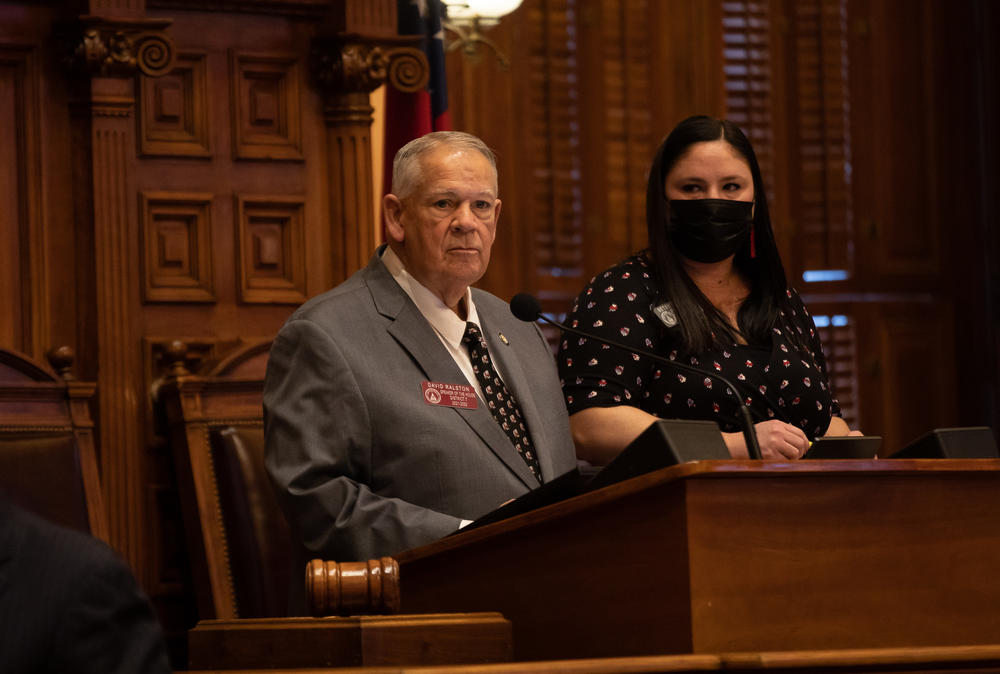
Caption
House Speaker David Ralston (R-Blue Ridge) speaks on the first day of the 2022 legislative session. Tuesday, the 28th day of the session, was Crossover Day, the deadline for bills to pass at least one chamber of the General Assembly.
Credit: Riley Bunch | GPB News



